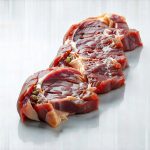Constipation is a surprisingly common digestive issue, affecting people of all ages. While often dismissed as merely uncomfortable, chronic constipation can significantly impact quality of life, leading to bloating, abdominal pain, and even more serious complications over time. Many factors contribute to this condition, ranging from inadequate hydration and lack of physical activity to underlying medical conditions and medication side effects. However, a frequently overlooked yet significant contributor is the modern diet, specifically our growing reliance on highly processed, dry grain-based foods. This isn’t necessarily about eliminating grains entirely; rather, it’s about understanding how the type and quantity of grains we consume can profoundly affect bowel regularity and overall digestive health.
Modern food systems often prioritize convenience and shelf life over nutritional density. As a result, many diets are heavily skewed towards refined grains – white bread, white rice, processed cereals, and countless snack foods based on cornstarch or wheat flour. These grains have had their fiber and essential nutrients stripped away during processing, leaving behind primarily starch. While starch provides energy, it lacks the bulk necessary to stimulate healthy bowel movements. Furthermore, these dry grains absorb water in the digestive tract without contributing much volume themselves, potentially leading to harder stools that are more difficult to pass. This creates a vicious cycle: reliance on dry grains contributes to constipation, which then leads to further dietary choices favoring easily digestible (and often grain-based) foods, exacerbating the problem. Understanding potential connections between digestive diagnostics can be helpful for identifying underlying issues.
The Role of Fiber and Grain Processing
Fiber is arguably the most important element missing from many modern diets, and its deficiency directly correlates with increased rates of constipation. There are two main types of fiber: soluble and insoluble. Insoluble fiber adds bulk to stool, helping it move more quickly through the digestive system – think bran, whole wheat, and vegetables. Soluble fiber, found in oats, beans, and fruits, dissolves in water to form a gel-like substance, softening stools and aiding regularity. Whole grains naturally contain both types of fiber, but processing drastically reduces their fiber content, particularly insoluble fiber.
The refining process removes the bran and germ – the most fibrous parts of the grain – leaving only the endosperm, which is primarily starch. This results in a food that’s calorically dense but nutritionally sparse. Consider white rice versus brown rice: brown rice retains the bran and germ, offering significant fiber benefits; white rice lacks these components entirely. Similarly, whole wheat bread boasts considerably more fiber than white bread. The consequences of this widespread processing are far-reaching. Reduced fiber intake not only leads to constipation but also impacts gut microbiome diversity, which plays a crucial role in overall health. It’s important to consider gut-friendly pantry staples when making changes.
A diet lacking in sufficient fiber forces the digestive system to work harder and requires more water to process food effectively. When these resources aren’t available – or when insufficient fiber is present – the colon absorbs excess water from stool, making it hard and difficult to eliminate. This can lead to a frustrating cycle of discomfort and reliance on laxatives, further disrupting natural bowel function. Prioritizing whole grains over refined grains is therefore a foundational step towards improving digestive health. If constipation is intermittent, exploring approaches to testing can help determine the root cause.
Hydration’s Interplay with Grain Consumption
The connection between hydration and constipation is often underestimated, but it’s profoundly important, especially when considering diets high in dry grains. As mentioned previously, dry grains absorb water during digestion. Without adequate fluid intake, this absorption can exacerbate stool hardness, making elimination more challenging. The body will attempt to compensate by drawing water from other areas, potentially leading to dehydration and further digestive issues.
It’s not just how much you drink but also what you drink that matters. Sugary drinks and excessive caffeine can actually contribute to dehydration as they have diuretic effects. Water is the ideal choice, but herbal teas and diluted fruit juices can also be beneficial. A general guideline is to aim for at least eight glasses of water per day, but individual needs vary based on activity level, climate, and overall health.
Furthermore, understanding the timing of hydration matters. Drinking water with meals helps soften stools and aids digestion. Many people instinctively reach for a beverage during a meal, but often choose something other than plain water. Making a conscious effort to hydrate with water alongside grain-based meals can significantly improve digestive function. Adequate hydration is not simply about preventing thirst; it’s an integral part of maintaining healthy bowel regularity and counteracting the dehydrating effects of dry grain consumption. Being mindful during special occasions and holidays can help maintain consistency.
Identifying Grain-Related Constipation
Recognizing that constipation might be linked to overreliance on dry grains requires careful self-assessment. Often, symptoms develop gradually, making them easy to dismiss or attribute to other factors. Look for these common indicators:
- Straining during bowel movements
- Infrequent bowel movements (less than three times per week)
- Hard, lumpy stools
- Feeling of incomplete evacuation
- Bloating and abdominal discomfort
These symptoms can be exacerbated by a diet that heavily features refined grains – white bread, pasta made from white flour, processed cereals, and snack foods. Consider tracking your food intake for a few days and noting any correlation between grain consumption and constipation symptoms. If you notice a pattern, it’s likely that grains are playing a role. It’s also important to rule out other potential causes of constipation, such as medication side effects or underlying medical conditions.
Strategies for Gradual Dietary Change
Making significant dietary changes can be daunting, but it doesn’t have to be an all-or-nothing approach. The key is to implement gradual modifications that are sustainable in the long term. Here’s a step-by-step plan:
- Swap refined grains for whole grains: Begin by replacing white bread with whole wheat bread, white rice with brown rice, and processed cereals with oatmeal or quinoa.
- Increase fiber intake from other sources: Incorporate more fruits, vegetables, legumes (beans, lentils), and nuts into your diet. These foods provide both soluble and insoluble fiber.
- Hydrate consistently: Aim for at least eight glasses of water per day, especially with meals.
- Read food labels carefully: Be mindful of hidden refined grains in processed foods – many snack foods contain cornstarch or wheat flour as fillers.
Avoid making drastic changes overnight, as this can lead to digestive upset. Introduce whole grains gradually and increase your fiber intake slowly to allow your body time to adjust. Consistency is more important than speed when it comes to dietary change. Understanding why you might get bloated after switching grains can ease the transition.
Beyond Diet: Lifestyle Factors
While diet plays a critical role in preventing constipation, other lifestyle factors also contribute significantly. Regular physical activity stimulates bowel movements and improves digestive function. Even a brisk 30-minute walk each day can make a noticeable difference. Stress management is also important, as stress can disrupt digestive processes. Incorporate relaxation techniques such as yoga, meditation, or deep breathing exercises into your routine. Finally, pay attention to your body’s signals – don’t ignore the urge to have a bowel movement. Delaying evacuation can lead to harder stools and more difficult elimination. It is also important to consider why chewing ice might be linked to gut imbalance, as habits can impact digestion. Addressing these lifestyle factors in conjunction with dietary changes provides a holistic approach to improving digestive health and preventing constipation. Also consider why unsoaked grains may contribute to digestive discomfort.


















